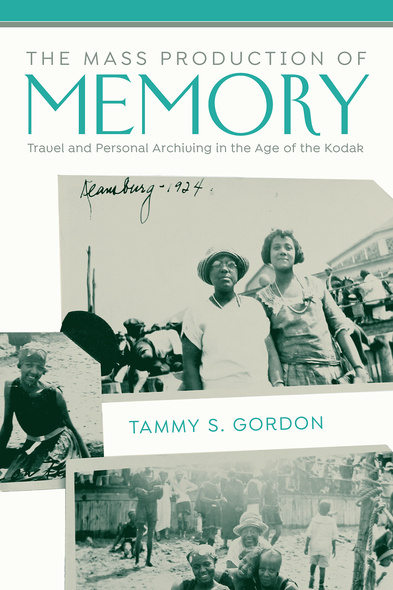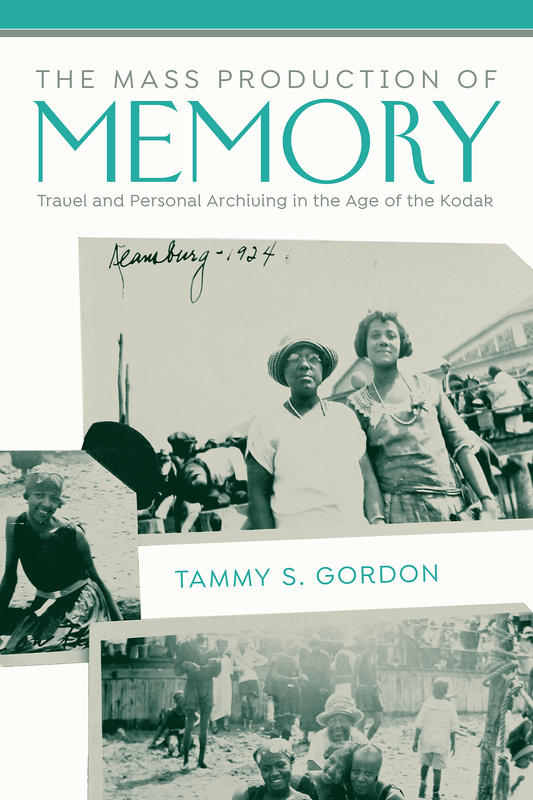
176 pages, 6 x 9
15 b&w illus.
Paperback
Release Date:27 Nov 2020
ISBN:9781625345325
Hardcover
Release Date:27 Nov 2020
ISBN:9781625345318
The Mass Production of Memory
Travel and Personal Archiving in the Age of the Kodak
University of Massachusetts Press
In 1888, the Eastman Dry Plate and Film Company offered the first portable camera that allowed users to conveniently take photos, using leisure travel as a primary marketing feature to promote it. The combination of portability, ease of use, and mass advertising fed into a national trend of popular photography that drew on Americans' increasing mobility and leisure time. The Kodak Company and the first generation of tourist photographers established new standards for personal archiving that amplified the individual's role in authoring the national narrative. But not everyone had equal access to travel and tourism, and many members of the African American, Native American, and gay and lesbian communities used the camera to counter the racism, homophobia, and classism that shaped public spaces.
In this groundbreaking history, Tammy S. Gordon tells the story of the camera's emerging centrality in leisure travel across the late nineteenth and early twentieth centuries and its role in "the mass production of memory," a process in which users crafted a visual archive attesting to their experiences, values, and circumstances, setting the stage for the customizable visual culture of the digital age.
In this groundbreaking history, Tammy S. Gordon tells the story of the camera's emerging centrality in leisure travel across the late nineteenth and early twentieth centuries and its role in "the mass production of memory," a process in which users crafted a visual archive attesting to their experiences, values, and circumstances, setting the stage for the customizable visual culture of the digital age.
‘The Mass Production of Memory is a valuable addition to the discourses on visual culture, the history of photography, race, gender, history, vernacular history, and social justice in America. Gordon’s writing is fluid even when she discusses her multiple theoretical and scholarly sources.’—Journal of American Culture
'This book is a pleasant, quick read with interesting insights about privilege and power in the context of tourism and photography.'—Journal of American History
'Gordon leads the reader on a fascinating journey into an often overlooked aspect of American life during the late 19th and early 20th centuries, illuminating how the personal camera cemented together certain aspects of individual and community identity . . . For those studying American material culture, this work will be of considerable value.'—CHOICE
'The Mass Production of Memory is a fascinating contribution to the field of public history, material culture, and visual culture studies.'—The Public Historian
'With a smooth, easy narrative style, Gordon weaves together fresh interpretive readings and solid archival work to create a stimulating study certain to attract an audience far broader than the usual circle of specialists, while still contributing substantially to the fields of public history and memory studies.'—Michael Frisch, author of A Shared Authority: Essays on the Craft and Meaning of Oral and Public History
'Gordon draws on an extensive archive, both visual and textual, and effectively teases out the implications of the materials. An important contribution to studies of visual culture, tourism, and photography in the United States, and to American studies more broadly.'—Alison Landsberg, author of Prosthetic Memory: The Transformation of American Remembrance in the Age of Mass Culture
TAMMY S. GORDON is professor of history at North Carolina State University and author of The Spirit of 1976: Commerce, Community, and the Politics of Commemoration.




